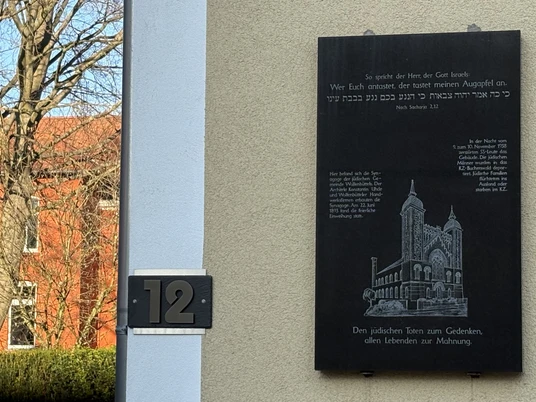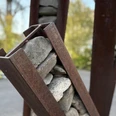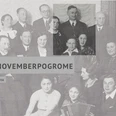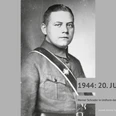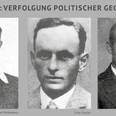Imagine it is the year 1883 and a new synagogue is being built in Wolfenbüttel. It is a large, beautiful building with high windows and a bright room for prayers. There is room for 200 men and 84 women in the gallery.
This is a very special moment for the Jewish community. There are many guests, such as citizens of non-Jewish faith or representatives of the city council. The synagogue becomes their meeting place - a place for prayers, celebrations and cohesion.
A Jewish service usually begins with communal prayer. Men and women sit separately, the men wear kippas, some also wear tallit, prayer shawls. The rabbi or prayer leader leads the congregation through the service. The Torah scroll, carefully written by hand, is taken from the holy shrine and solemnly recited. It is a moment of reflection and faith - the center of Jewish life.
However, this center was not to last. Until the night of November 9, 1938.
On this night, the so-called "Reichspogromnacht", there is violence against Jewish people throughout Germany. Many synagogues are destroyed. The synagogue in Lessingstraße was not spared. Nazis stormed in, broke the windows and furniture and set fire to the building. The fire department is on standby, but they have strict orders to only intervene if the flames spread to neighboring, non-Jewish buildings as well as at the special request of the SS.
The flames eat through the wood, through the benches, through the Torah scrolls - holy writings that were hundreds of years old. For the Jewish community, it is more than the loss of a building. It is the loss of a home. All that remains of the Wolfenbüttel synagogue are parts of the surrounding wall.
After the destruction of the synagogue in November 1938, only rubble and ashes remained. The National Socialists didn't just burn a building. They also wanted to destroy the life and culture of the Jewish community in Wolfenbüttel. That night, all the Jewish men in the community were arrested and deported to Buchenwald. The synagogue was a special place. A place for prayers, meetings and hope.
But that was not the end of the horror for the Jewish community in Wolfenbüttel . Fritz Ramien, the National Socialist mayor of Wolfenbüttel, made a perfidious demand of Wolfenbüttel's Jewish community. Ramien demanded that the remaining members of the Jewish community remove the remains of their synagogue or they would have to bear all the costs of the demolition. The danger to passers-by would be too great to allow the walls to remain. Ultimately, this was only the beginning of the end of the humiliation and destruction of the Jewish community in Wolfenbüttel.
Good to know
Openings
Eligibility
for Class
for familys
for individual guests
Pet allowed
for Children of the age of 10 upwards
Payment methods
Contact person
Stadt Wolfenbüttel - Abteilung Tourismus
Author
Lessingstadt Wolfenbüttel
Organization
Lessingstadt Wolfenbüttel
License (master data)
Lessingstadt Wolfenbüttel
Our recommendations
Nearby
